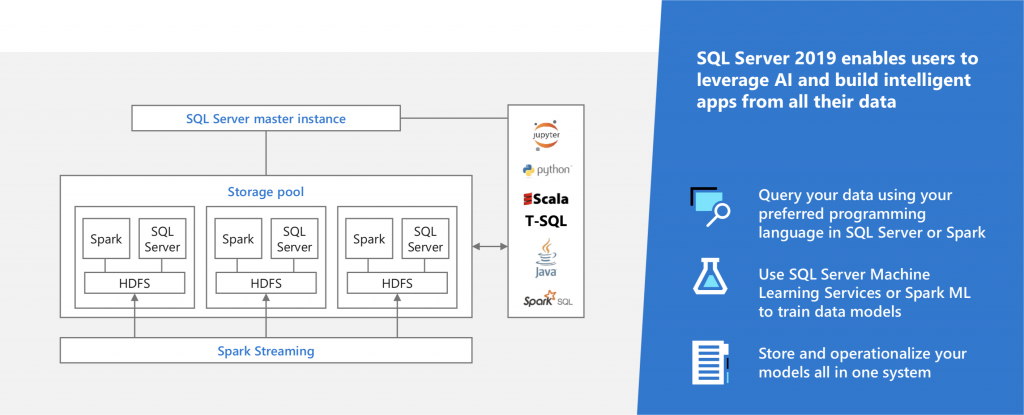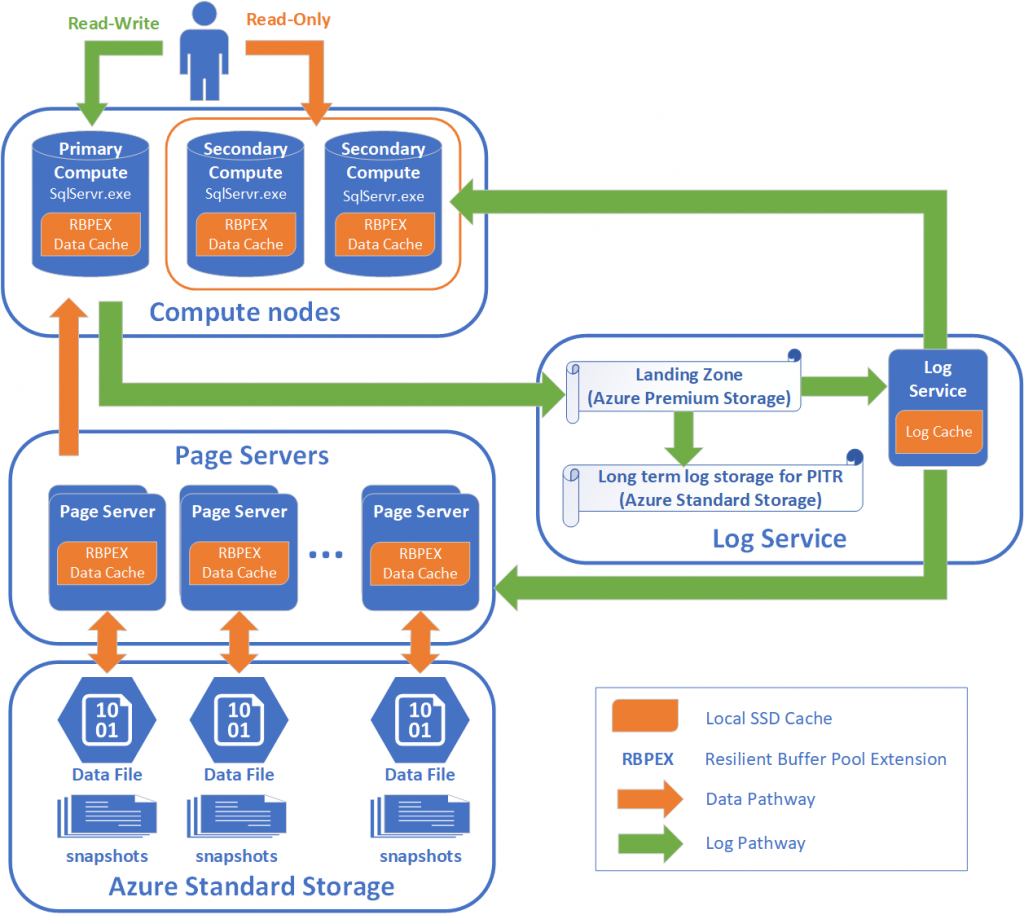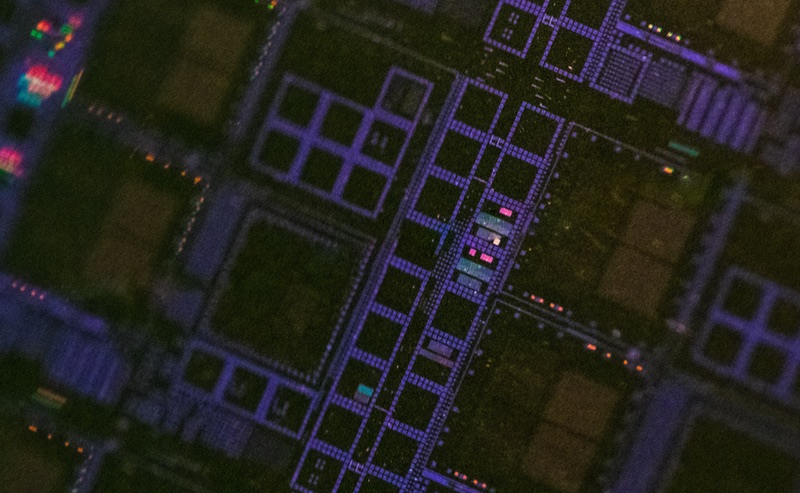Some time ago we started a new series here, called Database Fundamentals. The very first post in that series asked what a database is.
One of the major announcements at Ignite last month was that of SQL Server 2019 preview and major improvements to Azure SQL Database, Microsoft’s on-premises and cloud-based relational database systems, respectively.
Except …
Some of us may recall seeing an image like the following one, talking about Apache Spark and Kubernetes in the same sentence as SQL Server. Technology that has traditionally been associated with big data and NoSQL is now in the same box as SQL Server.

Then, to complicate matters, Azure SQL Database Hyperscale was announced in preview as well. Check out the following architectural diagram, and tell me this is the Microsoft you recognize.

When I wrote last week that the “database administrator” role is history, I wasn’t implying that databases are going away. What’s changing is the very definition of data management.
In the context of these new features in the first public preview of SQL Server 2019, and what’s possible with Azure SQL Database Hyperscale, I don’t think we can use the term RDBMS with a straight face. Put another way, it’s clear that the RDBMS (or in clearer terms, the relational database engine) is now a smaller part of the bigger data platform picture.
What this means as we go forward is that the SQL Server administrator will not be the gatekeeper of your data. There might be a team of people involved in managing the so-called data estate.
In fact, we’ve seen a steady progression over the last couple of years demonstrating this kind of change.
First, Microsoft got SQL Server to run as native code on Linux, using the exact same database engine as we find on the Windows version. Then they used this same concept to bring SQL Server to Docker containers. Anyone can run SQL Server now, on any operating system. That is mind-boggling.
Then Microsoft said we could run .NET inside SQL Server. A few versions later this was extended to R and Python, and now Java! This is unprecedented.
Then they decided that wasn’t enough (JAVA! INSIDE SQL SERVER!) so they embraced Hadoop as well.
But Hadoop wasn’t enough either. Now with Azure SQL Database Hyperscale, the compute engine is separate from the storage engine and I don’t even know where one part stops and the other part begins.
My question for you this week is, how would you define a database administrator, and should the term be retired?
Sound out in the comments below.

way to many shops/companies/enterprises still using even sql2005, where none of these features exists, and not many really needs all of them, I would say that we should continue learning and pushing the limits, but the typical DBA role is not going anywhere yet, would be there for some years still
Comments are closed.